
FISH PHYSIOLOGY AND BIOCHEMISTRY
Scope & Guideline
Innovative Insights into Fish Biochemistry
Introduction
Aims and Scopes
- Physiological Responses to Environmental Changes:
Research exploring how fish adapt physiologically to variations in their environment, including temperature fluctuations, hypoxia, salinity changes, and other stressors. - Nutritional Physiology:
Investigations into the effects of dietary components on fish health, growth performance, and metabolic processes, including studies on dietary supplements and alternative feed sources. - Molecular and Cellular Mechanisms:
Studies that delve into the molecular and cellular responses of fish to various stimuli, including gene expression, metabolic pathways, and cellular stress responses. - Reproductive Biology:
Research focusing on the reproductive strategies of fish, including hormonal regulation, gamete quality, and the impacts of environmental factors on reproductive success. - Health and Disease Management:
Investigations into the immune responses of fish to pathogens and stressors, including studies on disease resistance and the effects of stress on fish health. - Biochemical Markers and Indicators:
The development and application of biochemical markers to assess fish health, environmental quality, and physiological responses to various treatments or conditions.
Trending and Emerging
- Climate Change Impact Studies:
Research examining the effects of climate change on fish physiology and biochemistry is on the rise, focusing on adaptation mechanisms and resilience of fish populations. - Nutraceuticals and Functional Feeds:
Increasing interest in the use of nutraceuticals and functional feeds to enhance fish health and performance has become a prominent theme, reflecting a shift towards improving aquaculture sustainability. - Genomic and Transcriptomic Approaches:
The application of genomic and transcriptomic methods to study fish biology is emerging, allowing for deeper insights into the molecular mechanisms underlying physiological responses. - Microbiome Research:
Studies exploring the role of the gut microbiome in fish health and nutrition are gaining traction, highlighting its importance in aquaculture and environmental health. - Stress Physiology and Management:
Research focusing on understanding stress responses in fish, including coping mechanisms and management strategies to enhance welfare in aquaculture settings, is increasingly relevant.
Declining or Waning
- Traditional Aquaculture Practices:
Research focusing on conventional aquaculture methods appears to be waning, as newer sustainable practices and alternative feed sources gain prominence. - Invasive Species Studies:
Studies concentrating on the physiological impacts of invasive fish species on local ecosystems have decreased, possibly due to shifting research interests towards conservation and biodiversity. - Basic Morphological Studies:
There is a noticeable decline in purely morphological studies, as the field increasingly emphasizes molecular and physiological approaches to understand fish biology. - Environmental Toxicology of Lesser-known Contaminants:
Research on the effects of lesser-known environmental contaminants on fish physiology has become less frequent, possibly overshadowed by more pressing issues like climate change and habitat degradation.
Similar Journals
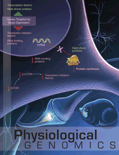
Physiological Genomics
Elevating the Science of Physiological GenomicsPhysiological Genomics is a prestigious scholarly journal published by the American Physiological Society, dedicated to advancing the understanding of the genetic underpinnings in physiology. With an ISSN of 1094-8341 and an E-ISSN of 1531-2267, this journal serves as a vital platform for researchers exploring the intersection of genetics and physiological processes. As of 2023, it enjoys a respectable impact factor, particularly standing strong in the Q2 quartile in both Genetics and Physiology categories, illustrating its importance within a competitive landscape. With an impressive rank of #69 out of 193 in Biochemistry, Genetics, and Molecular Biology - Physiology, and #128 out of 347 in Genetics, it reflects a robust commitment to quality research. Committed to fostering innovation, Physiological Genomics provides comprehensive access to groundbreaking studies from 1999 to 2024 and remains a quintessential resource for researchers, professionals, and students alike aiming to enhance their understanding of physiological genomics.
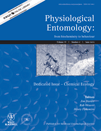
PHYSIOLOGICAL ENTOMOLOGY
Transforming Understanding of Insect DynamicsPHYSIOLOGICAL ENTOMOLOGY is a prestigious journal published by WILEY, focusing on the intricate relationships between physiological processes and the ecological and evolutionary dynamics of insects. With an ISSN of 0307-6962 and E-ISSN of 1365-3032, this journal has been at the forefront of insect science since its inception in 1976, contributing significantly to the understanding of insect physiology and behavior. The journal has established itself within the academic community, currently holding a position in the Q2 quartile for both Ecology, Evolution, Behavior and Systematics and Insect Science, highlighting its relevance and impact in these fields. Although there are no Open Access options available, researchers and practitioners can rely on its regular publications to stay abreast of pivotal discoveries and methodologies in insect physiology. With a commitment to advancing the field through rigorous peer-reviewed research, PHYSIOLOGICAL ENTOMOLOGY serves as an essential resource for researchers, professionals, and students alike.

Journal of Ichthyology
Championing Conservation Through Ichthyological InsightsJournal of Ichthyology, published by PLEIADES PUBLISHING INC, is a respected periodical in the field of aquatic sciences and biological studies, focusing extensively on the study of fish and their ecosystems. With an ISSN of 0032-9452 and E-ISSN of 1555-6425, this journal serves as an essential platform for researchers seeking to publish innovative findings related to ichthyology and broader aquatic biological sciences. Although currently not an open-access journal, its high relevance is reflected in its impact factor and varied audience, addressing pressing issues in biodiversity, conservation efforts, and fish biology. The journal's classification indicates a Q3 ranking in Agricultural and Biological Sciences and a Q4 ranking in Aquatic Science for 2023, affirming its contributions to the field despite its percentile standings in Scopus ranking. The journal has a publication history that spans critical converged years from 1976 to 2024, making it a vital resource for ongoing research developments and scholarly discourse. For academics, professionals, and students alike, the Journal of Ichthyology remains a key resource for advancing knowledge and enhancing the understanding of fish biology and their ecological impacts.
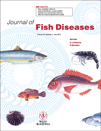
JOURNAL OF FISH DISEASES
Transforming aquaculture practices with cutting-edge insights.JOURNAL OF FISH DISEASES, published by WILEY, stands as a preeminent peer-reviewed journal in the fields of aquatic science and veterinary medicine. With its ISSN 0140-7775 and E-ISSN 1365-2761, this journal has been a leading platform for disseminating groundbreaking research since its inception in 1978. Recognized for its excellence, it boasts a Q1 ranking in both Aquatic Science and Veterinary (miscellaneous) categories for 2023, affirming its vital role in advancing knowledge in fish pathology and health management. The journal engages a diverse audience of researchers, professionals, and students committed to tackling fish diseases and enhancing aquaculture practices. Although it does not offer open access, the journal ensures high visibility and accessibility to key research findings that impact aquatic ecosystems and veterinary practices globally. With a commitment to fostering innovation, the JOURNAL OF FISH DISEASES continues to shape the future of aquatic health research well into its convergence through 2024.
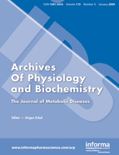
ARCHIVES OF PHYSIOLOGY AND BIOCHEMISTRY
Advancing the Frontiers of Physiology and BiochemistryArchives of Physiology and Biochemistry, published by Taylor & Francis Ltd, is a renowned journal that has been pivotal in advancing knowledge and research in the fields of physiology and biochemistry since its inception. With an impact factor reflective of its significant contributions, this journal is categorized in Q2 in Medicine (miscellaneous) and Q3 in Physiology, underscoring its relevance and scholarly impact within the scientific community. The journal publishes original research articles, review papers, and innovative methodologies that explore the intricate relationships between physiological functions and biochemical processes. With its commitment to fostering scientific discourse, the Archives of Physiology and Biochemistry serves as an essential resource for researchers, professionals, and students alike, providing insights and evidence that drive forward the frontiers of medical and physiological science. The journal is accessible in both print and online formats, ensuring that critical research reaches a wide audience.

FISHERIES SCIENCE
Innovating solutions for thriving aquatic ecosystems.Fisheries Science, published by Springer Japan KK, is a renowned journal in the field of aquatic science, effectively bridging the gap between scientific research and practical application in fisheries management. With an ISSN of 0919-9268 and an E-ISSN of 1444-2906, this journal serves as a vital resource for researchers, professionals, and students interested in advancing their knowledge and understanding of aquatic ecosystems and fishery practices. Operating within a competitive landscape, Fisheries Science has achieved a respectable ranking in Scopus, placing 96th out of 247 journals in the Agricultural and Biological Sciences > Aquatic Science category, showcasing its integral role in contributing to this dynamic field. The journal encompasses a wide range of topics from sustainable development to conservation strategies, aiming to foster collaborative research and innovative solutions to the challenges facing fisheries today. While not an open-access journal, Fisheries Science remains a key publication for those dedicated to marine science and the sustainable management of aquatic resources, with a historical footprint extending from 1994 to 2024.
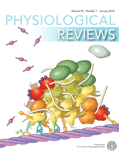
Physiological Reviews
Transforming Research into Comprehensive ReviewsPhysiological Reviews is a prestigious journal published by the American Physiological Society, dedicated to advancing our understanding of physiology across various domains. With an impressive impact factor that places it in Q1 quartiles for medicine, molecular biology, and physiology as of 2023, this journal is recognized as a leading source of high-quality reviews and research analyses. The journal has been a vital resource for the scientific community since its inception in 1945, providing in-depth and comprehensive insights that are crucial for both scholars and practitioners in the field. Although not an open-access publication, it remains widely accessible through institutional subscriptions, ensuring that crucial research findings are disseminated efficiently. With Scopus rankings that place it in the top percentile across multiple categories, Physiological Reviews continues to be an essential platform for the latest advancements and discoveries in physiology, making it indispensable for researchers, professionals, and students alike.

ENVIRONMENTAL BIOLOGY OF FISHES
Bridging ecological insights and fish conservation strategies.ENVIRONMENTAL BIOLOGY OF FISHES, published by SPRINGER, is a premier journal in the fields of Aquatic Science and Ecology, Evolution, Behavior and Systematics. With a rich history spanning from 1976 to 2024, this esteemed journal provides a platform for groundbreaking research that addresses critical issues such as fish ecology, species behavior, and environmental influences on aquatic life. Recognized for its significant contributions, it holds a Q2 ranking in both the Aquatic Science and Ecology categories, reflecting its influence and relevancy in the academic community. The journal's focus on innovative ecological studies makes it an essential resource for researchers, professionals, and students dedicated to advancing our understanding of fish biology and the broader ecological systems of which they are a part. Although not an open-access publication, the insights and findings presented in its articles are invaluable for those engaged in the preservation and sustainable management of aquatic environments.

MARINE AND FRESHWATER BEHAVIOUR AND PHYSIOLOGY
Advancing Insights into Aquatic BehaviorsMARINE AND FRESHWATER BEHAVIOUR AND PHYSIOLOGY, published by Taylor & Francis Ltd, is a renowned academic journal dedicated to advancing the understanding of the behavioral and physiological aspects of aquatic organisms. Established in 1994, the journal serves as a pivotal platform for researchers and professionals in the fields of Aquatic Science and Oceanography, offering valuable insights into the interactions between aquatic species and their environments. With an impact factor reflecting its significance in the academic community, it occupies a notable position in Category Quartiles, currently ranking Q3 in both Aquatic Science and Oceanography. Researchers are encouraged to explore a wide range of topics reflecting the complexity and diversity of marine and freshwater ecosystems. Although the journal is not open access, its contributions continue to influence both current research and future investigations, making it an essential resource for anyone engaged in the study of aquatic life.
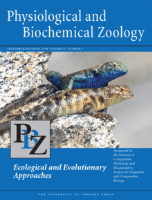
PHYSIOLOGICAL AND BIOCHEMICAL ZOOLOGY
Connecting Physiology, Biochemistry, and ZoologyPhysiological and Biochemical Zoology is a distinguished peer-reviewed journal published by University of Chicago Press, focusing on the interrelated fields of animal physiology, biochemistry, and zoology. With a strong commitment to advancing scientific understanding, this journal serves as a vital resource for researchers, professionals, and students alike, providing a platform for the latest findings and advancements in the field. Ranking in the top quartile (Q1) in Animal Science and Zoology as of 2023, and showcasing a substantial convergence of historical data from 1999 to 2023, its impact in the academic community is underscored by its engagement with high-quality research. While it also appears in the third quartile for Biochemistry and Physiology, the journal successfully integrates these disciplines, reflecting the complexity of biological systems. Available for reading via various access options, this journal is essential for anyone seeking to deepen their knowledge or contribute to the field of Zoological sciences.